10 Best Herbal Tinctures For Gum Pain

Herbal tinctures for gum pain are concentrated liquid extracts made from various plant-based ingredients known for their anti-inflammatory and antimicrobial properties.
Commonly used herbs include echinacea, goldenseal, and sage, which can help reduce swelling and combat oral bacteria that contribute to gum irritation. These tinctures are typically applied topically to the gums or diluted and used as mouth rinses for localized relief. They are often favored as natural alternatives to conventional treatments, offering a gentler approach with fewer side effects.
However, it is important to consult a dental professional before using herbal tinctures to ensure they are safe and effective for individual oral health conditions.
Table of Contents
- 1. Salvia (Salvia officinalis)
- 2. Echinacea (Echinacea purpurea)
- 3. Oregano (Origanum vulgare)
- 4. Ceylon cinnamon (Cinnamomum verum)
- 5. Bloodroot (Sanguinaria canadensis)
- 6. Black pepper (Piper nigrum)
- 7. Yarrow (Achillea millefolium)
- 8. Ginger (Zingiber officinale)
- 9. German chamomile (Chamomilla recutita)
- 10. Aloe vera (Aloe barbadensis)
1. Salvia (Salvia officinalis)

Salvia officinalis, commonly known as sage, has been traditionally used for its anti-inflammatory and antimicrobial properties, making it a valuable ingredient in herbal tinctures for gum pain.
These tinctures are often prepared by soaking dried sage leaves in alcohol to extract their active compounds, such as thujone and flavonoids, which can help reduce swelling and prevent infections in the gums. When applied topically or used in mouth rinses, sage tinctures may provide relief from irritation and promote healing of inflamed gum tissues. Due to its natural potency, it is important to use these tinctures in moderation and consult with a healthcare professional before incorporating them into a dental care routine.
Overall, salvia officinalis tinctures offer a natural alternative for managing gum pain, though their effectiveness can vary depending on individual health conditions and proper usage.
2. Echinacea (Echinacea purpurea)

Echinacea purpurea herbal tinctures are commonly used for their potential anti-inflammatory and antimicrobial properties, which may help alleviate gum pain associated with periodontal issues.
These tinctures are typically made by soaking the dried roots and flowers of the echinacea plant in alcohol, allowing the active compounds to be extracted. While some studies suggest that echinacea may support the immune system and reduce inflammation, its effectiveness specifically for gum pain is still being explored. When using echinacea tinctures for gum pain, it is important to dilute the tincture with water to avoid irritation and to consult with a healthcare professional, especially if you are taking other medications or have underlying health conditions.
As a complementary remedy, echinacea tinctures may be used alongside conventional dental care practices for a holistic approach to gum health.
3. Oregano (Origanum vulgare)
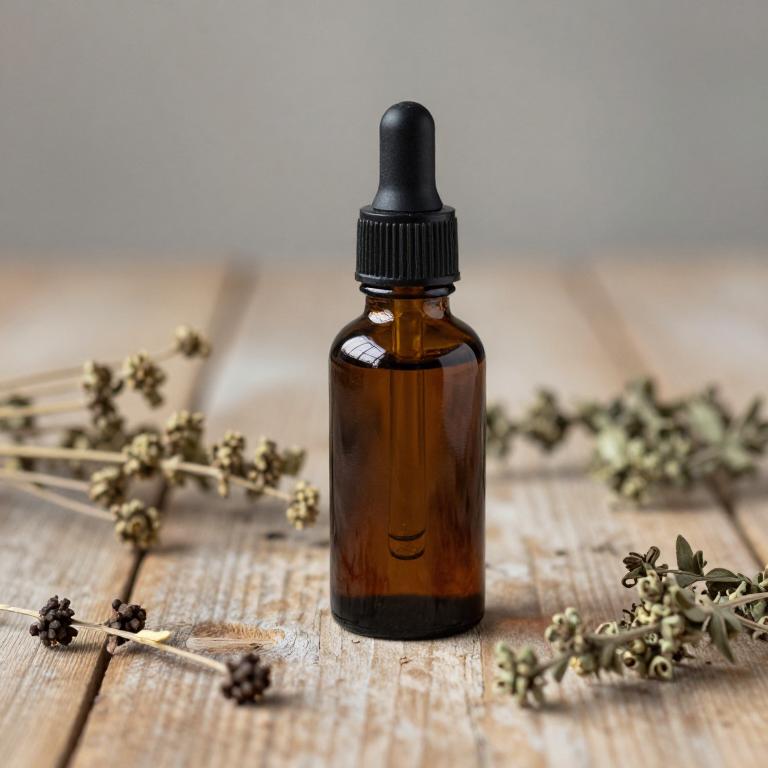
Oreganum vulgare, commonly known as oregano, is often used in herbal tinctures to alleviate gum pain due to its antimicrobial and anti-inflammatory properties.
These tinctures typically contain a concentrated form of oregano essential oil, which is extracted through steam distillation to preserve its active compounds like carvacrol and thymol. When applied topically or used in mouth rinses, oregano tinctures can help reduce bacterial infections and inflammation in the gums, promoting faster healing. However, it is important to dilute the tincture properly to avoid irritation, as concentrated oregano oil can be harsh on sensitive oral tissues.
While some studies suggest its effectiveness, it is advisable to consult a healthcare professional before using oregano tinctures for persistent or severe gum issues.
4. Ceylon cinnamon (Cinnamomum verum)
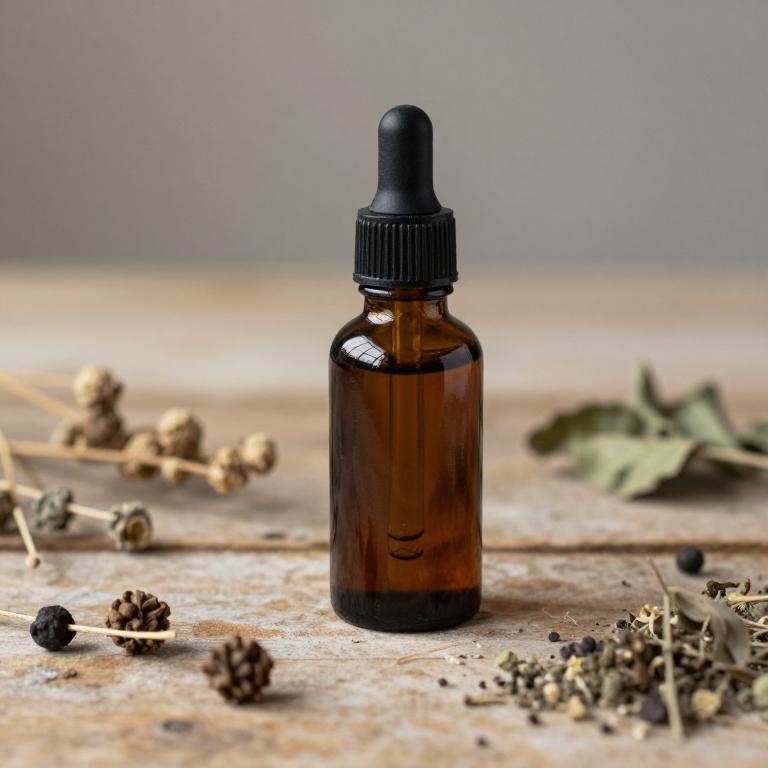
Cinnamomum verum, commonly known as true cinnamon, has been traditionally used for its antimicrobial and anti-inflammatory properties, making it a popular ingredient in herbal tinctures for gum pain.
These tinctures are often prepared by soaking cinnamon bark in alcohol to extract its active compounds, such as cinnamaldehyde and eugenol, which can help reduce inflammation and kill harmful bacteria in the mouth. When applied topically or used as a mouth rinse, cinnamon tinctures may alleviate gum irritation and prevent infections. However, it is important to use them in moderation, as excessive consumption can lead to irritation or allergic reactions.
As a natural remedy, cinnamon tinctures can be a useful complementary treatment for mild gum pain, though they should not replace professional dental care.
5. Bloodroot (Sanguinaria canadensis)
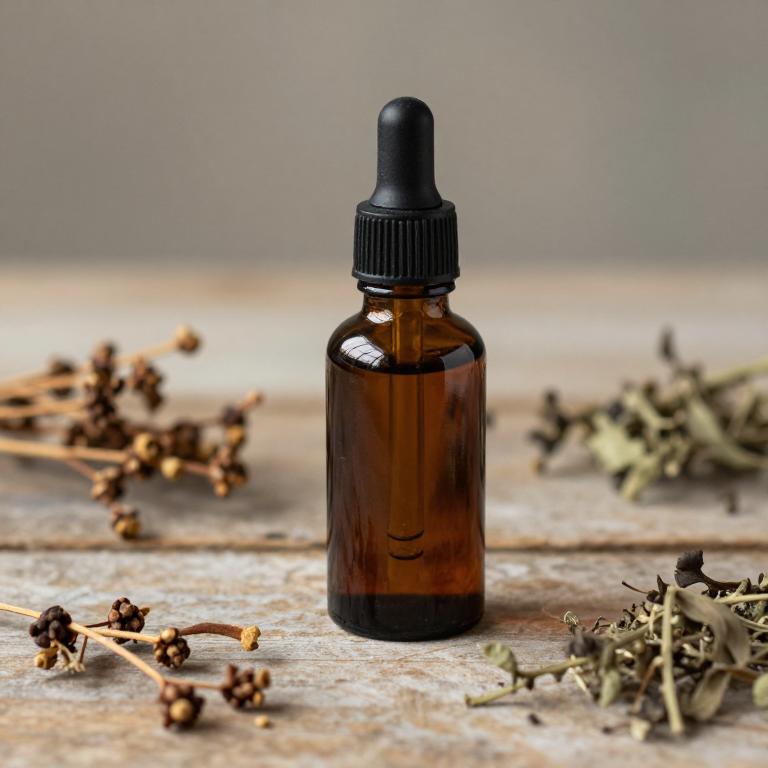
Sanguinaria canadensis, commonly known as bloodroot, has been traditionally used in herbal medicine for its potential soothing properties.
When prepared as a tincture, it may help alleviate gum pain due to its anti-inflammatory and astringent effects. The active compounds in bloodroot, such as sanguinarine, are believed to reduce bacterial growth and promote healing in the oral cavity. However, it is important to use bloodroot tinctures with caution, as they can be toxic if ingested in large amounts.
Always consult a healthcare professional before using this herbal remedy, especially for prolonged or severe gum pain.
6. Black pepper (Piper nigrum)
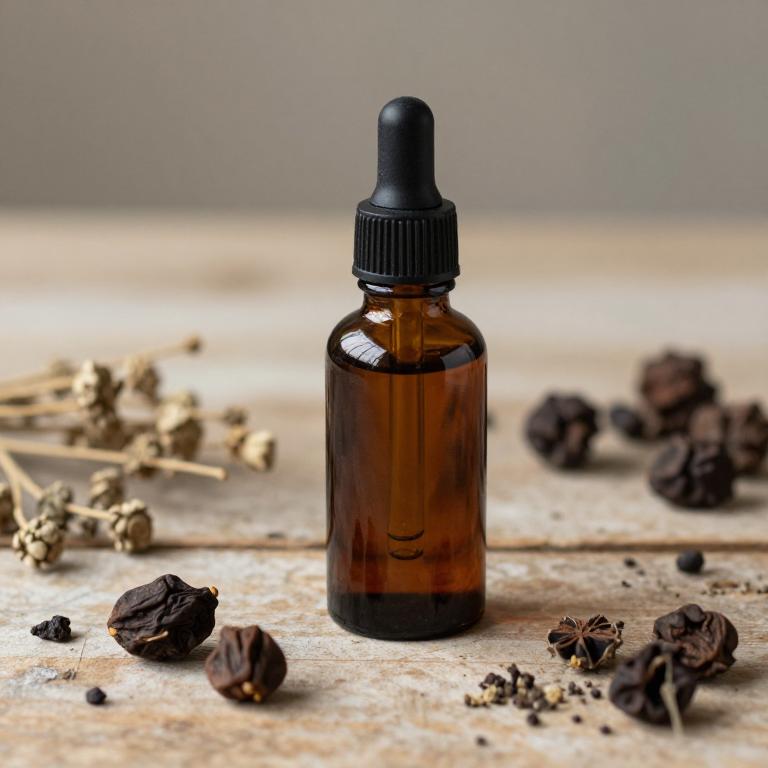
Piper nigrum, commonly known as black pepper, has been traditionally used in herbal medicine for its anti-inflammatory and analgesic properties.
When prepared as a tincture, piper nigrum may offer relief for gum pain due to its active compound, piperine, which has been shown to reduce inflammation and inhibit bacterial growth. The tincture can be applied directly to the affected gums or used as a mouth rinse to soothe irritation and promote healing. However, it is important to consult a healthcare professional before using it, as it may interact with certain medications or exacerbate existing conditions.
While some anecdotal evidence supports its use, more scientific research is needed to fully understand its efficacy and safety for gum pain relief.
7. Yarrow (Achillea millefolium)

Achillea millefolium, commonly known as yarrow, has been traditionally used in herbal medicine for its anti-inflammatory and astringent properties.
When prepared as a tincture, it can be applied topically to the gums to help reduce swelling and pain associated with gingivitis or periodontal issues. The tincture works by promoting circulation and reducing bacterial buildup, which can contribute to gum inflammation. To use it, a few drops can be applied directly to the affected area using a clean cotton swab.
While generally safe, it is advisable to consult a healthcare professional before using yarrow tincture, especially if you have known allergies or are taking other medications.
8. Ginger (Zingiber officinale)

Zingiber officinale, commonly known as ginger, has been traditionally used for its anti-inflammatory and analgesic properties, making it a popular ingredient in herbal tinctures for gum pain.
These tinctures are typically prepared by soaking fresh or dried ginger in alcohol, allowing the active compounds such as gingerol and shogaol to be extracted for therapeutic use. When applied topically or used in mouth rinses, ginger tinctures can help reduce inflammation, swelling, and discomfort associated with gingivitis and periodontal issues. The warming effect of ginger also promotes blood circulation in the gums, aiding in the healing process.
However, it is important to consult with a healthcare professional before using ginger tinctures, especially if you have existing health conditions or are taking medications.
9. German chamomile (Chamomilla recutita)
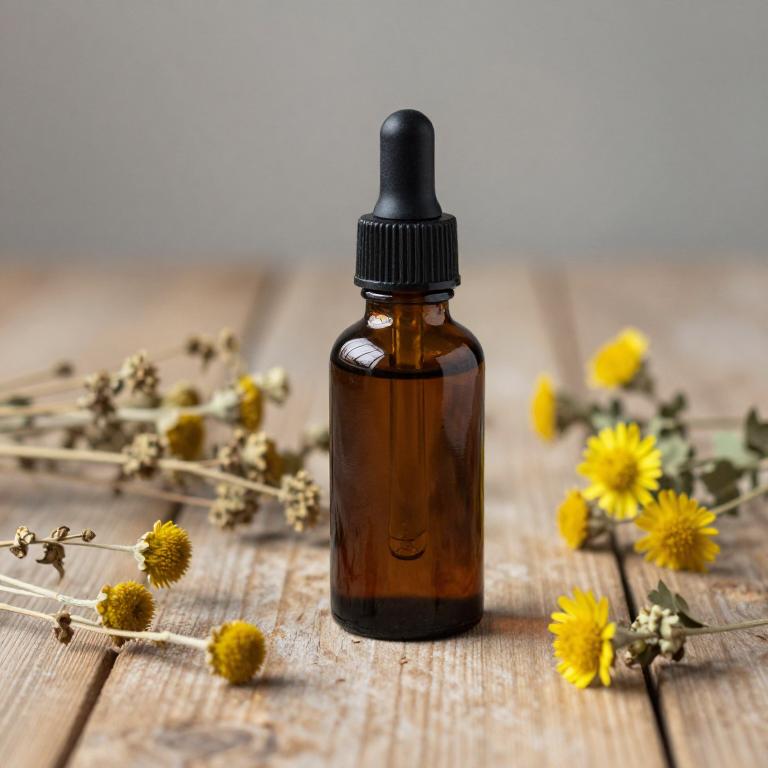
Chamomilla recutita, commonly known as German chamomile, is often used in herbal tinctures to alleviate gum pain due to its anti-inflammatory and analgesic properties.
These tinctures are typically prepared by soaking the dried flowers in alcohol, allowing the active compounds such as bisabolol and chamazulene to be extracted. When applied topically to the gums, the tincture can help reduce swelling, irritation, and discomfort associated with conditions like gingivitis or periodontal disease. Its mild antiseptic qualities also help prevent bacterial growth, supporting overall oral health.
However, it is important to consult with a healthcare professional before using chamomile tinctures, especially if you have allergies or are taking other medications.
10. Aloe vera (Aloe barbadensis)
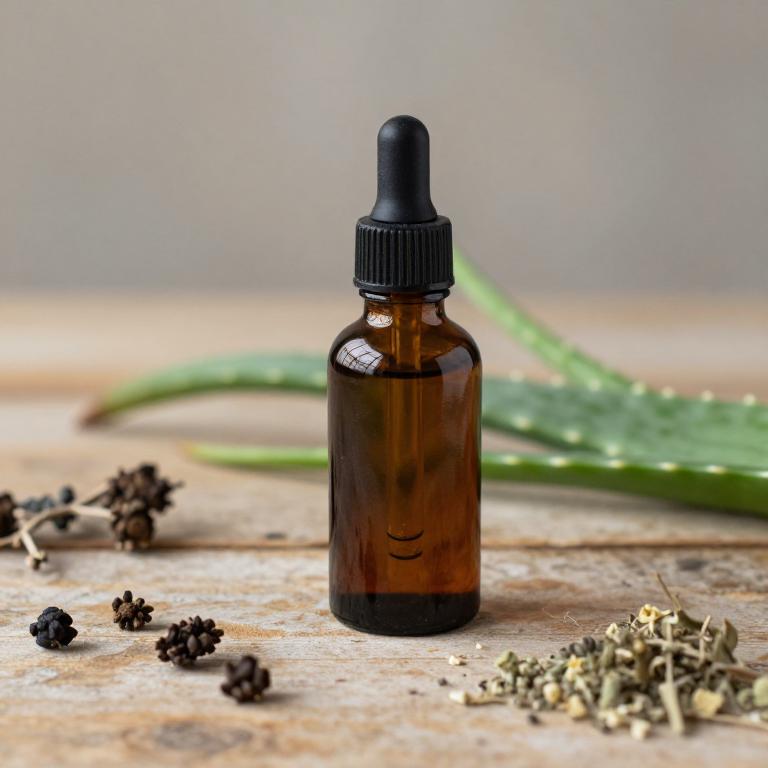
Aloe barbadensis, commonly known as aloe vera, is a succulent plant that has been used for centuries for its soothing and healing properties.
Aloe barbadensis herbal tinctures, derived from the gel of the plant, are often used to alleviate gum pain due to their anti-inflammatory and antimicrobial effects. These tinctures can help reduce swelling, redness, and irritation in the gums, promoting faster healing of minor oral injuries. The natural compounds in aloe vera, such as polysaccharides and enzymes, contribute to its ability to support oral health and comfort.
However, it is important to consult a dentist or healthcare provider before using aloe tinctures, especially if you have existing oral conditions or are taking other medications.